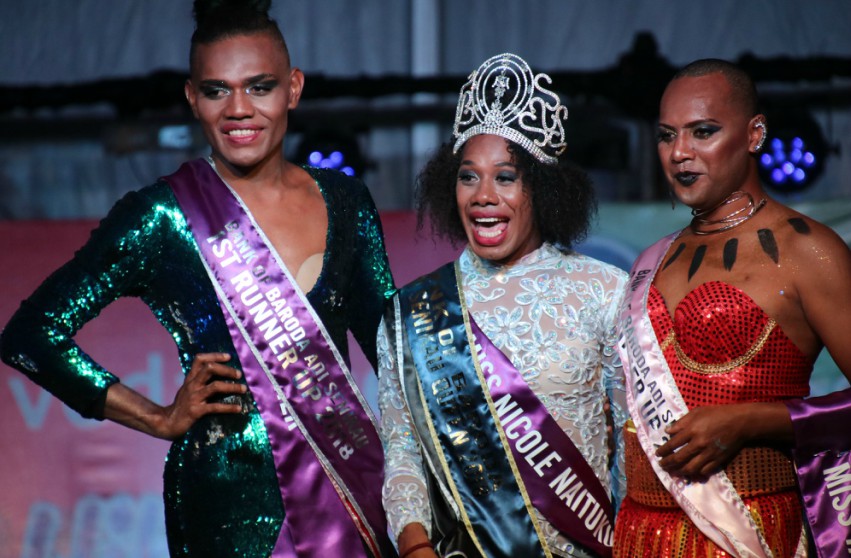Nicole Naituku (center) wins the 2018 Adi Senikau pageant. | Photo: Facebook
There aren’t too many places in the world where a trans pageant runs as part of a huge mainstream festival. But in Fiji, trans women get the chance to shine.
The annual Adi Senikau Pageant is more than just a pageant. It’s a platform to encourage trans women in Fiji and the Pacific ‘to come as they are’.
‘[It’s] to encourage women of all our diversity to participate and be part of society, because they too matter,’ the pageant’s chief coordinator, Sulique Waqa told Gay Star News.
Fiji is a country in the Pacific islands about 4,635kms north-east of Australia. LGBTI rights have a long way to go in the country, but groups like Haus of Khameleon, a social justice organization devoted to ending discrimination and violence against transgender people, which organized the pageant are fighting to make positive changes.
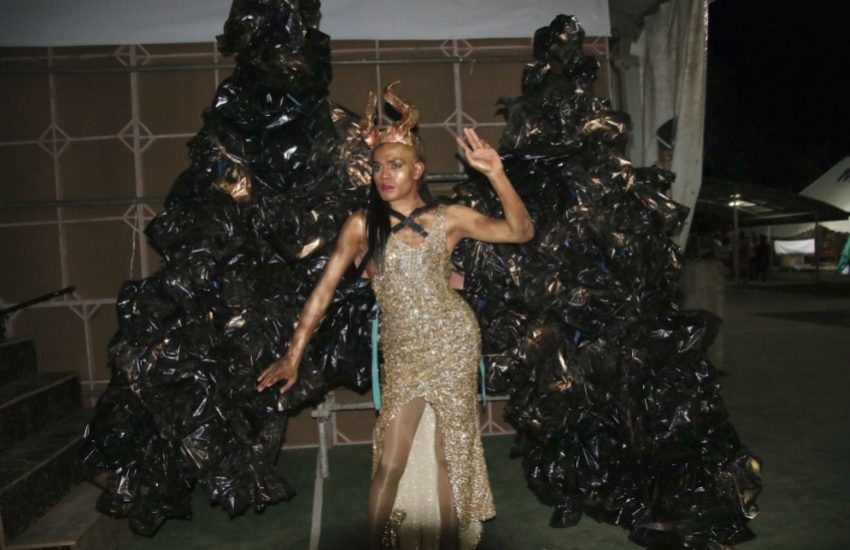
One of the stars of the Adi Senakau pageant. | Photo: Facebook
Remarkably the pageant runs as part of the wider Hibiscus Festival- Fiji’s longest running festival. The week long cultural festival brings Fiji’s capital Suva to a standstill.
That kind of visibility is crucial to achieve the pageant’s objective. That objective is to create a ‘platform for the transgender community to use as part of their advocacy on issues they feel are dear to them’.
‘This year’s message has been about “Love and Acceptance”. To those self-identified as transgender, gender queer and the like, be open to the beauty of being you, beyond any label or identity,’ Waqa said.
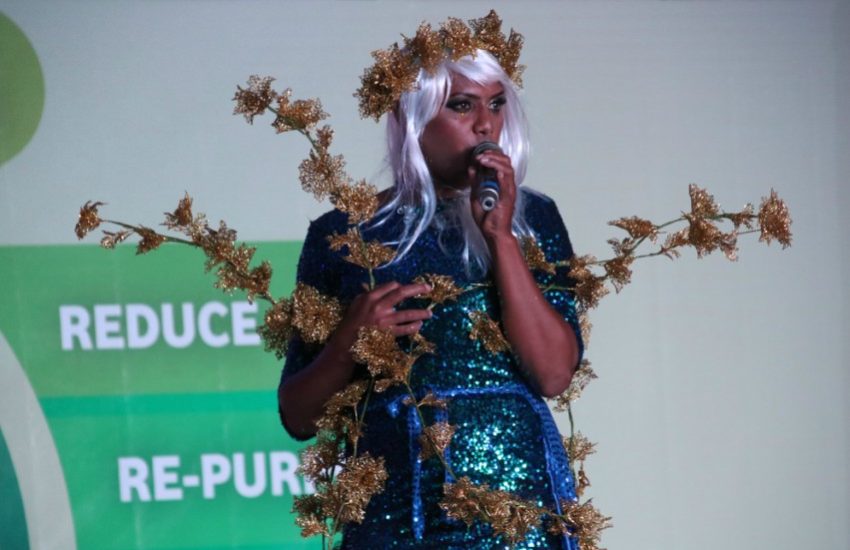
The entertainment section of the Adi Senakau pageant | Photo: Facebook
Transphobes shut down the pageant
The Adi Senikau Pageant has had a successful 10-year history. But another fantastic achievement is that it came back after transphobes forced it out of the Hibiscus Festival.
‘It was shunned out of the Hibiscus Festival (in 2003) because a few of the transphobic committee members thought that the pageant was promoting sin and didn’t belong in the festival,’ Waqa said. ‘However, 7 years later the Adi Senikau Pageant was resurrected and became an official event of the festival.’
But coming back bigger and better in 2010 sent a message that ‘transgender women were not going anywhere’, Waqa said.
Despite its success and popularity transphobic groups are still actively trying to shut it down. Last year, the Catholic Women’s League petitioned the government to stop the pageant going ahead.
‘The transsexual pageant in Adi Senikau event is a tip of the immoral iceberg, the gathering of pervert’s and a disorder of attitude of human nature make mockery of God creation,’ reportedly said.
Waqa said those comments show ‘we are still continuing to resist individuals and groups who oppose the trans community’.
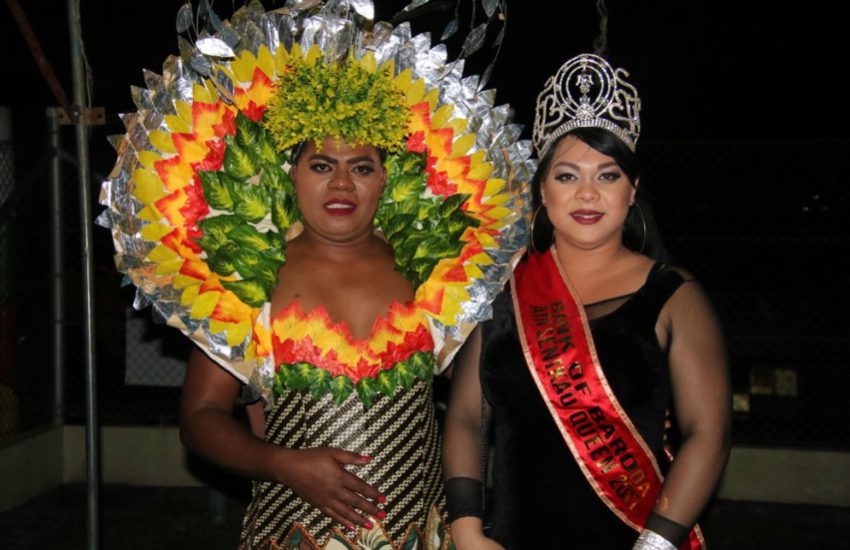
The Adi Senakau pageant gets mainstream media coverage. | Photo: Facebook
Love and acceptance
Along with promoting trans women in Fiji the pageant is also open to trans women from other Pacific islands countries.
Ten women battled it out this year getting creative with the theme, ‘Out of this World – The Search for the Next Habitable Planet’.
‘The theme is really about interrogating humankind on this planet and the fact that we have not done enough to take care of planet earth,’ Waqa said.
‘So the search for the next habitable planet also poses some serious questions whether as a human species, do we even deserve to be on this planet anymore and why the hell are we searching for Earth-like planets when we cannot even take care of planet earth?’
26-year-old Nicole Naituku won the competition for passionate LGBT advocacy.
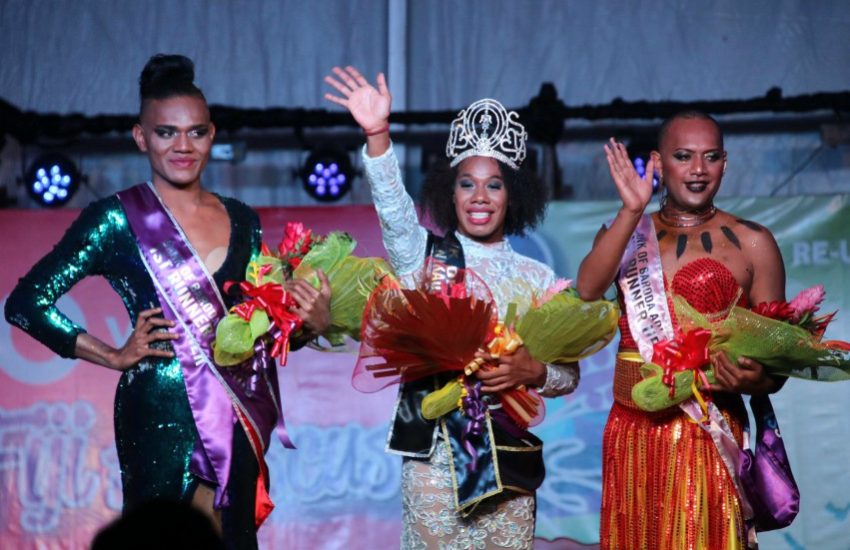
The top three Adi Senakau pageant girls. | Photo: Facebook
‘I cannot believe that I won. It took a lot of challenges and hard work and it paid off for me,’ Naituku told the Fiji Sun.
‘This pageant has been one of the most beautiful experiences for me, especially the bonding with the sisters.’
Waqa said the message of ‘Love and Acceptance’ was so important for the women to hear.
‘To trans people: Please let us continue to resist and fight against the discrimination we suffer, but let us go beyond that to help others to see a way to build bridges rather than walls, to love and not judge, and to create ways that our world can work with all of us,’ Waqa said.
‘To non-trans people: we are just like you, we just have had different life experiences. Let us listen and learn from each other, work together to common goals, and resist judgements and encourage support and help for each other.’

